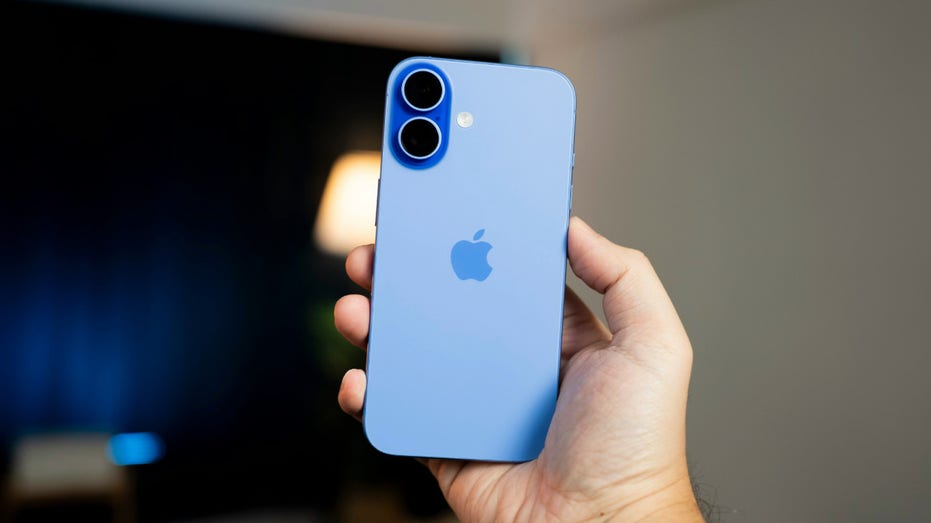- by foxnews
- 02 Jun 2025
How hackers are breaking into Apple devices through AirPlay
Tech expert Kurt "CyberGuy" Knutsson reveals that a new AirPlay bug lets hackers take over Apple devices via Wi-Fi with no clicks needed.
- by foxnews
- 11 May 2025
- in technology

Apple's AirPlay was designed to make life easier, letting users stream music, photos and videos from iPhones and MacBooks to TVs, speakers and other compatible devices with just a tap. But now, cybersecurity researchers have revealed that this same convenience may be opening the door to hackers. A new set of vulnerabilities, collectively called AirBorne, could turn AirPlay-enabled gadgets into stealthy entry points for malware and network infiltration.
From there, attackers could move laterally within a home or corporate network, silently hopping from one device to another. They might install malware or ransomware, disrupt operations or even lock users out of their own systems. In some cases, compromised devices could be added to a botnet, a network of hijacked machines working in unison for larger attacks. And because many smart gadgets come equipped with microphones, hackers could even turn them into tools for eavesdropping and surveillance.
Apple has already patched the AirBorne bugs on its own devices and issued updates to third-party vendors. However, researchers warn that many third-party AirPlay-enabled products, possibly tens of millions, may never receive a fix, either because they do not auto-update or because vendors are slow or unwilling to release security patches.
A striking demonstration by Oligo showed how easily a Bose speaker was taken over to display the firm's logo, proving how simple it could be for a hacker to silently gain control. Though Bose was not specifically targeted, the example highlights the broader risk. Any unpatched device using AirPlay SDK could be a gateway for malicious actors.
The researchers also discovered that Apple CarPlay is affected. While exploiting it would be harder and would require Bluetooth or USB pairing, more than 800 car and truck models are potentially vulnerable.
1) Set up a separate Wi-Fi network for smart devices: Most modern routers allow you to create multiple networks. Use this feature to keep your smart home devices such as AirPlay-enabled speakers, TVs or receivers on a dedicated "IoT" (Internet of Things) network. Keep this separate from your main devices, like phones, laptops and work computers. This segmentation ensures that even if a hacker gains access to a vulnerable smart device, they cannot easily reach more critical or sensitive devices on the primary network.
2) Disable AirPlay when not actively using it: AirPlay is designed to always be on and discoverable, which makes it convenient but also leaves it exposed. If you rarely use AirPlay or only use it occasionally, go into your device settings and turn it off completely. On Apple devices, AirPlay settings can be found under "General" or "AirPlay & Handoff." For third-party devices, check their companion apps or manuals. Turning off AirPlay removes it as an open door for attackers.
3) Avoid using AirPlay on public or unsecured Wi-Fi and use a VPN: One of the key conditions for exploiting AirBorne vulnerabilities is that the attacker must be on the same Wi-Fi network as the target device. This makes public Wi-Fi networks in places like cafés, airports, hotels or shared workspaces particularly risky. If you need to use your device in such environments, avoid casting, streaming or pairing with smart devices.
5) Limit device permissions and exposure: Smart devices with AirPlay support often include features like microphones, auto-pairing and remote access. Review each device's settings and disable any features you do not actively use. For example, if your smart speaker has a microphone, but you never use voice commands, turn off the microphone or cover it. The fewer functions a device has exposed, the fewer opportunities a hacker has to exploit it. If your router supports it, use device-level firewall rules to limit which services or internet connections your smart gadgets can access.
Apple likes to market itself as the go-to for privacy and security, but the AirBorne vulnerabilities show that the company's devices are far from bulletproof. While they patched their own products, millions of third-party AirPlay devices are still wide open to attack. It's becoming clear that Apple's control over its ecosystem isn't as tight as they'd like you to believe. If they really want to be the privacy leader, they need to step up and fix these issues across the board, not just when it suits them.
Follow Kurt on his social channels:
Answers to the most-asked CyberGuy questions:
New from Kurt:
Copyright 2025 CyberGuy.com. All rights reserved.
- by foxnews
- descember 09, 2016
History buff uncovers lost medieval monastery thanks to strange map symbol
Swedish archaeologists uncovered medieval monastery ruins in Derome, thanks to a history enthusiast's research of old maps and advanced radar technology.
read more





